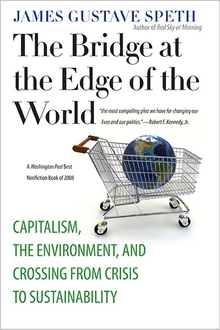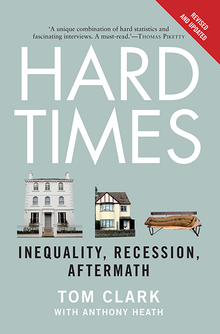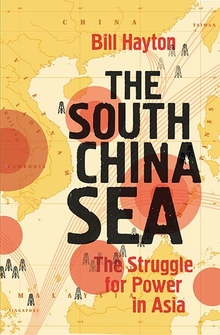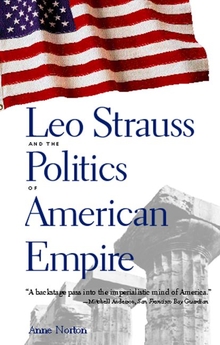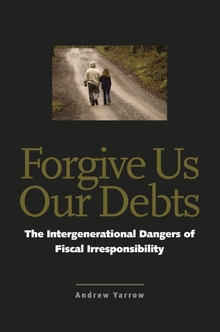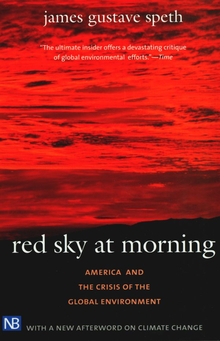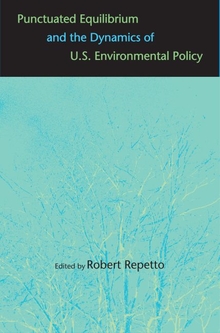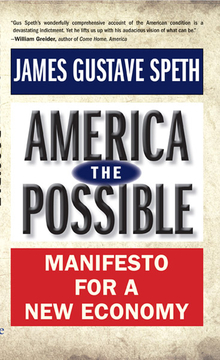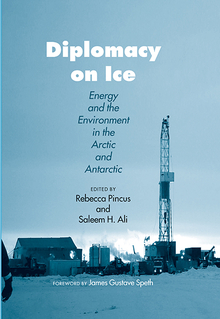The Bridge at the Edge of the World
WARNING
You are viewing an older version of the Yalebooks website. Please visit out new website with more updated information and a better user experience: https://www.yalebooks.com
Capitalism, the Environment, and Crossing from Crisis to Sustainability
Large Type / Large Print Edition
James Gustave Speth
Click here to listen to an interview with the author on the Yale Press Podcast
“My point of departure in this book is the momentous environmental challenge we face. But today’s environmental reality is linked powerfully with other realities, including growing social inequality and neglect and the erosion of democratic governance and popular control. . . . As citizens we must now mobilize our spiritual and political resources for transformative change on all three fronts.”—Gus Speth
How serious are the threats to our environment? Here is one measure of the problem: if we continue to do exactly what we are doing, with no growth in the human population or the world economy, the world in the latter part of this century will be unfit to live in. Of course human activities are not holding at current levels—they are accelerating, dramatically—and so, too, is the pace of climate disruption, biotic impoverishment, and toxification. In this book Gus Speth, author of Red Sky at Morning and a widely respected environmentalist, begins with the observation that the environmental community has grown in strength and sophistication, but the environment has continued to decline, to the point that we are now at the edge of catastrophe.
Speth contends that this situation is a severe indictment of the economic and political system we call modern capitalism. Our vital task is now to change the operating instructions for today’s destructive world economy before it is too late. The book is about how to do that.
James Gustave Speth, a distinguished leader and founder of environmental institutions over the past four decades, is dean of the School of Forestry and Environmental Studies at Yale University. He was awarded Japan’s Blue Planet Prize for “a lifetime of creative and visionary leadership in the search for science-based solutions to global environmental problems.” He lives in New Haven, CT.
For information on upcoming events, visit the author's website Bridge At the Edge of the .com.
Click here for an extended question & answer discussion with the author.
Click here for a Q&A with Gus Speth on the NYTimes Economics blog
"Speth is a maestro—conducting a mighty chorus of voices from a dozen disciplines all of which are calling for transformative change before it is too late. The result is the most compelling plea we have for changing our lives and our politics. And it is a compelling case indeed."—Robert F. Kennedy, Jr.
"Honest, insightful, and courageous. Dean Speth draws on his formidable experience and wisdom to ask why we are failing to preserve a habitable Earth. His conclusions are cogent, revolutionary, and essential."—David W. Orr, Paul Sears Distinguished Professor of Environmental Studies and Politics, Oberlin College. Author of Design on the Edge and Earth in Mind
"When a figure as eminent and mainstream as Gus Speth issues a warning this strong and profound, the world should take real notice. This is an eloquent, accurate, and no-holds-barred brief for change large enough to matter."—Bill McKibben, author, Deep Economy and The Bill McKibben Reader
"An extremely important book both for what it says and for who is saying it. The steady transformation of a solid, pragmatic, progressive negotiator into a 'radical and unrealistic' oracle concerned with the fundamental nature of modern economies is an important event."—Richard Norgaard, University of California, Berkeley
"One can scarcely choose a more important or timely subject than this one. Speth writes about it with passion and conviction, and a touch of humor."—J. R. McNeill, Georgetown University
"A powerful and ambitious attempt to characterize the changed strategies environmental organizations need to adopt to become more effective. This book challenges many things that would seem to have political immunity of a sort—among others, corporate capitalism, the environmental movement itself, and the forces of economic globalization."—Donald Kennedy, editor-in-chief, Science Magazine
Boston College, and author of The Overspent American: Why We Want What We Don't Need
"Gus Speth leads us to the formidable bridge we must cross -- an epic transformation in how we live, consume and produce -- to halt capitalism's destructive forces and to improve the human condition. A calm and persuasive guide, Speth is infused with the human optimism always needed for great historic shifts."—William Greider, author, The Soul of Capitalism: Opening Paths to a Moral Economy
"What a delight to read Gus Speth's' new book, which no one else could write but all will admire, stunned by his remarkable talents. The book opens vast new opportunities for thought and discussion in science and public affairs and will undoubtedly long stand as the classic that it is."—George M. Woodwell, Founder, Director Emeritus, and Senior Scientist, Woods Hole Research Center
"Gus Speth’s critique of unbridled capitalism is riveting and haunting, and his solutions are poetic and inspiring."—Devra Davis, author of The Secret History of the War on Cancer and When Smoke Ran Like Water
"In The Bridge at the Edge of the World, James Gustave Speth gives us new lenses with which to see what we have done to our environment and, more important, to see what we can do to restore it. He challenges us all to act not for ourselves, but for our children and grandchildren. In particular, he takes on the most powerful guardians of the status quo—our mindsets. The bridge he hopes to construct has its bridgehead firmly based in today, because Speth asks us to think about it and then to use our creativity, imagination, and the power of common purpose to act to restore the environment and create a healthier world."—Honourable Gordon Campbell, Premier,
Province of British Columbia
"Gus Speth is one of the leaders in trying to steer humanity on a course to sustainability, and this is his most important book to date. Read it, and then take some action."—Paul R. Ehrlich, author with Anne Ehrlich of The Dominant Animal: Human Evolution and the Environment
Missouri Botanical Garden
"Speth understands that America's addiction to growth must be challenged, and that we need to learn to recognize what is 'enough.' In recognizing that what environmentalism needs most is the forging of a new consciousness, Speth's book becomes a powerful support to our Network of Spiritual Progressives—indispensable reading!"—Tikkun
"With candor, cadence and clarity, Speth presents a compelling case for prompt action, making this book a must-read on the subject."—Bloomberg News
"If America can be said to have a distinguished elder statesman of environmental policy, Speth is it. . . . He is after bigger game—the Wal-Martization of
America, our slavish devotion to an ever-expanding gross domestic product, the utter failure of what [he] disparagingly calls ‘modern capitalism’ to create a sustainable world. What is needed, Speth believes, is not simply a tax on greenhouse gas emissions, but ‘a new operating system’ for the modern world."—Orion
"Are these solutions hopelessly idealistic and impossible to achieve? Speth’s passionate argument is convincing—it can be done, but it will require a great deal of effort."—The Futurist
"His call for a radical departure for the [environmental] movement’s current strategy comes from the ultimate environmental insider."—The Nation
"Speth’s indictment of the present state of our politics is precise and perceptive. . . . He urges a bold and broad agenda for systemic changes."—Bioscience
"[Speth is] one of the most influential actors in the mainstream environmental movement."—Chelsey Perkins, Utne Reader
"Speth provides both specifics of what is wrong and a strong argument for change and then suggests some mechanisms to begin to get there."—Paul R. Cooley, Science Books & Films
"Speth delivers a bracing critique of the environmental movement."—Melinda Tuhus, E Magazine
"Powerful. . . . The writing is deeply humane, witty, uplifting, and modest rather than pretentious. . . . A superb synthesis of the great economic questions of our time."—Robert Kuttner, The American Prospect
"This volume should be read by anyone concerned about the future of humankind on the planet. . . . Highly recommended. All collections and readership levels."—Choice
"The most compelling plea we have for changing our lives and our politics."—Robert F. Kennedy, Jr.
Selected as one of the best books of 2008 by the Washington Post in the Nature & The Environment category
Publication Date: March 28, 2008
8 b/w illus.

